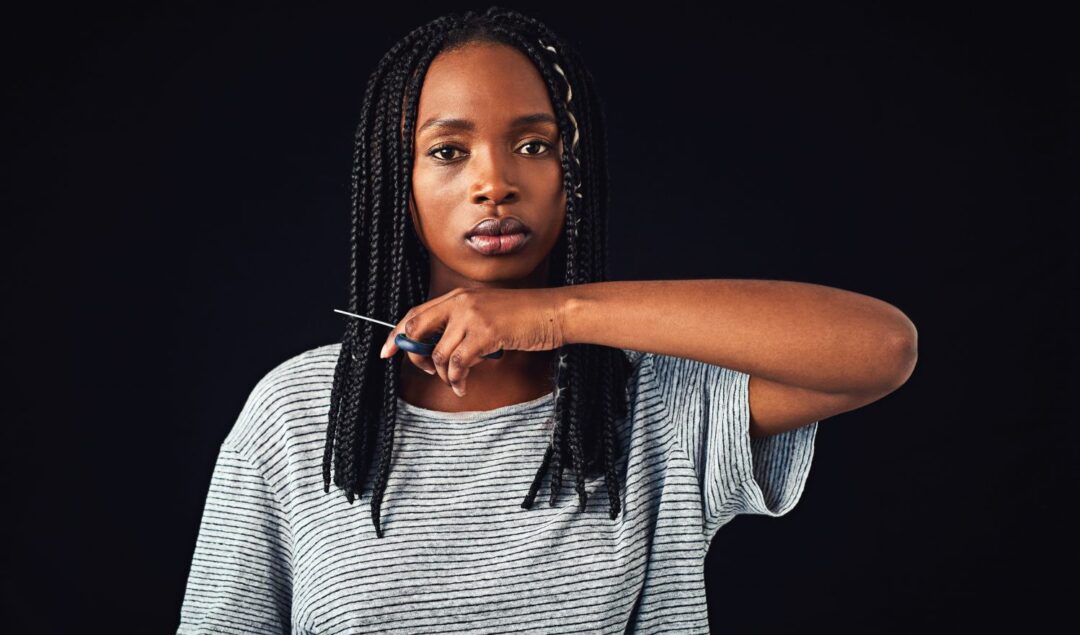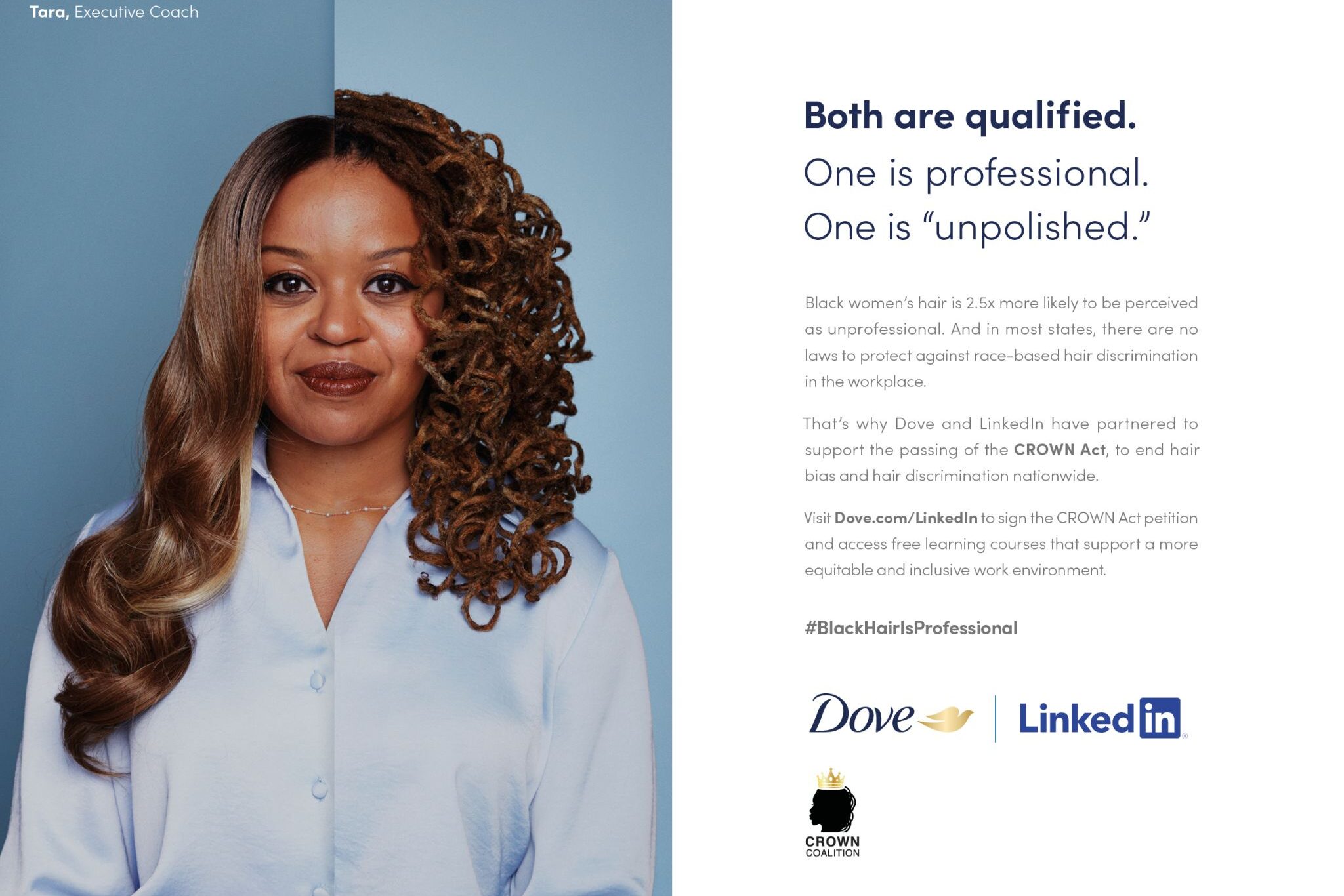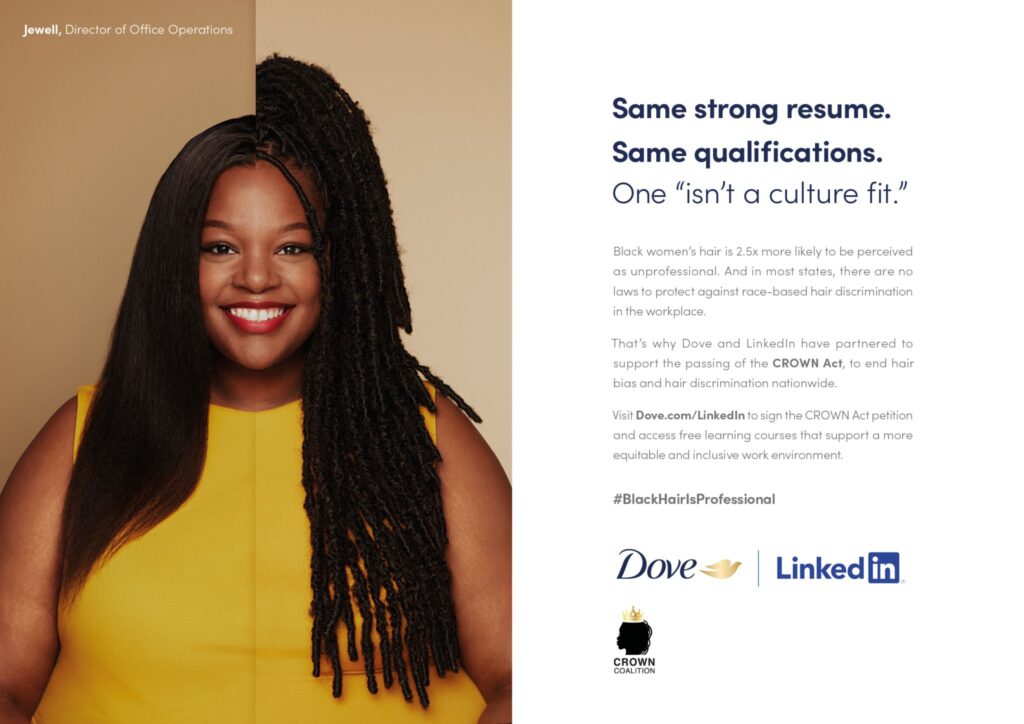Dove Partners With LinkedIn To Make Hair Discrimination Illegal

The discourse around Black hairstyles being seen as “too Black” for professional settings has grown over recent years but it’s 2023, why is hair discrimination still a thing?
To help remove the negative connotations placed around natural hair and professionalism, Dove has partnered with LinkedIn and The Crown Coalition to make hair discrimination in the workplace completely illegal.
Dove’s partnership with LinkedIn will help shed some light on The Crown Act, legislation prohibiting racial discrimination based on natural textures and protective hairstyles.

The act, fighting to make hair discrimination illegal nationwide, will remove the biased policing many Black women experience when choosing to rock their natural hairstyle in a professional setting.
“In the US, the law in many states does not currently afford protection for race-based hair discrimination, even if the hairstyle is inherent to racial identity,” read an online statement.
“That means, Black women can be denied opportunities for employment or professional advancement without consequence. It means Black children can be denied entry to school or educational opportunities because of their hair. This is NOT OK.”
According to figures provided by Dove, Black women are 80% more likely to change their natural hair to meet social norms or expectations at work. Additionally, Black women are 1.5 times more likely to be sent home or know of a Black woman who has been sent home from work because of her hair.

These numbers also trickle down to young Black children who experience hair discrimination from as early as five years old – an experience that tends to stick with them for a lifetime.
The constant policing of Black women’s hair is nothing new. Black women have spent many years dealing with discrimination and workplace bias due to the way they style their hair so will illegalizing it solve the problem?
As a founding member of The CROWN Coalition, Dove has championed The Crown Act movement, created and driven by a village of Black women who desire to end discrimination.



